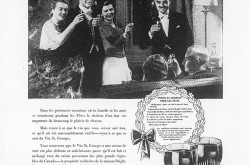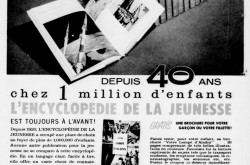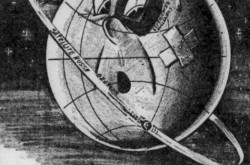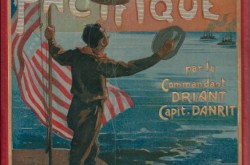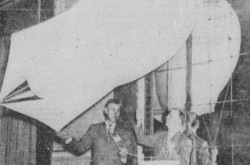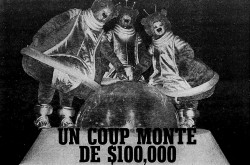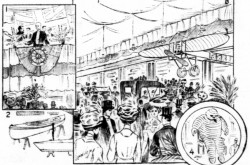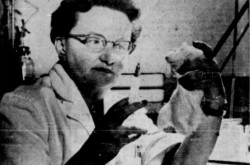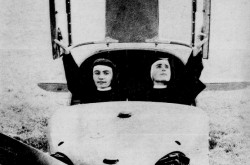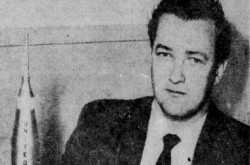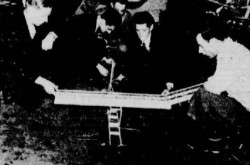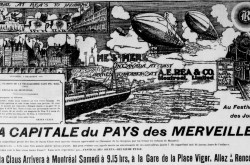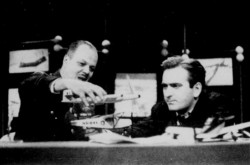“Worth Defending” – A brief look at the 1954 advertising campaign of a major Canadian aircraft manufacturing firm, Canadair Limited of Montréal, Québec, part 3
Greetings, my reading friend fascinated by the Cold War. Yours truly is delighted to welcome you to this 3rd part of our article on the 1954 advertising campaign of the aircraft manufacturer Canadair Limited of Montréal, Québec, a campaign inspired by a January 1941 speech by an important American president, Franklin Delano Roosevelt.
And yes, my horrified and depressed reading friend, this 3rd part should be less horrible and depressing than the 2nd one. I hope.
Canadair returned to Roosevelt’s four freedoms, or to the first one to be exact, with an advertisement entitled “Freedom of Speech,” in French “La liberté d’expression / Liberté de parole,” offered in April 1954 to readers of various North American and European newspapers and magazines.
Err, yes, you are indeed correct, my punctilious reading friend. The European publications which contained our advertisements were all magazines. And yes again, the United Kingdom was / is indeed a European country.
The drawing in the advertisement showed a middle-aged, if not elderly, man standing on a small platform speaking to a crowd composed largely of white male Homo sapiens. A small British flag was attached to the structure of that platform.
And yes, my anglophile reading friend, the drawing showed the Speakers’ Corner which is located in London, England, in a royal park, Hyde Park, more precisely. Said speaker corner, the first in the world, had been officialised by the Parks Regulation Act of 1872.
You might be pleased, or displeased, to learn that Canada’s first speakers’ corner was apparently dedicated in Regina, Saskatchewan, in April… 1966. There had been at least one in Australia since 1878, but I digress.
The text of the Québec French language sub-version of the April 1954 advertisement read as follows, once translated:
“I disapprove of what you say, but I will defend to the death your right to say it!” – VOLTAIRE
That historic statement is often evoked in the name of straight talk, the right of any individual to defend his political opinions … to protest against government decisions … to express new ideas or defend old ones. Yet all this is called a ‘crime’ and is brutally repressed wherever fascism or communism prevails. In those countries, freedom of thought and conscience, free speech must disappear … In fact, they do disappear, and often in the midst of unspeakable atrocities!
Let us appreciate the freedom we enjoy in Canada … We have the right to denounce what is unjust and to defend what is just! Our freedom of expression is the cornerstone of true democracy. It is worth defending!
The text of the European French language sub-version of that same ad, somewhat less vehement, was different enough to justify its presentation to you, once translated:
“I disapprove of what you say, but I will defend to the death your right to say it!” – François M. A. Voltaire
Freedom of speech – the right to hold political opinions … to protest against the government … to express new ideas or to defend tradition … those are all ‘crimes’ hastily stifled in totalitarian regimes … and freedom of thought, freedom of conscience are no more.
Consider the freedom we enjoy in free countries … to denounce evil … to exalt good! Our freedom of speech is the keystone of true democracy. Our freedom of speech is worthy of defence!
The connection between fascism and communism presented by the authors of the two North American texts is again worth noting, and this even if the English language text was rather less vehement. For some reason, the authors of the European texts seemed to prefer once again not to use the term communism.
Speaking (typing?) of “La liberté d’expression,” in English freedom of expression, dare I mention here the Loi protégeant la province contre la propagande communiste adopted in Québec in March 1937 by the very conservative government led by Maurice Le Noblet Duplessis?
That legislative measure, quickly nicknamed the loi du cadenas, in English padlock act / law, containing no definition of communism, Québec’s police forces operating in the 1930s, 1940s and 1950s could freely harass organisations leaning even slightly to the left.
One only needed to think of various Jewish organisations, the Civil Liberties Union of Québec or the Co-operative Commonwealth Federation (CCF), a social-democratic party represented in the House of Commons of Canada, in Ottawa, Ontario. Yes, yes, represented in the House of Commons of Canada, by individuals elected outside Québec, and this between October 1935 and August 1961, when the CCF became the New Democratic Party.
Those same police forces were of course harassing the Communist Party of Canada (CPC) and the Labor-Progressive Party (LPP), the name under which the CPC operated after it was outlawed, in May 1940, by the federal government. Incidentally, the LPP openly and publicly returned to its old name in October 1959. Few people noticed the change, nor cared about it.
And yes, the CPC was a political party which could not have been more legal when the Loi protégeant la province contre la propagande communiste was adopted.
By the way, that law was declared unconstitutional by the Supreme Court of Canada in March 1957, but I digress.
Need I point out that the French writer / poet / playwright / philosopher / encyclopedist François-Marie Arouet, better known as Voltaire, was mentioned in June 2023, October 2023 and May 2024 issues of our poetic, philosophical and encyclopedic blog / bulletin / thingee? I thought so.
A brief digression if I may. The quote with which the authors of the 2 French language sub-versions and the 2 English language sub-versions introduced the April 1954 Canadair advertisement was pure rubbish. Yes, yes, pure rubbish. Arouet / Voltaire never wrote, or even said, those words.
The quote in question was invented out of whole cloth, and in English, by an English author, Evelyn Beatrice Hall, in a popular anecdotal biography of said Arouet / Voltaire, The Friends of Voltaire, which she published in England in 1906 under the pseudonym of S.G. Tallentyre.
Better yet or worse still, I will let you decide, the role played by Hall in the creation of the quote in question had been known since... 1935.

The advertisement “Les droits de l’homme,” in English “The Rights of Man,” published by Canadair Limited of Montréal, Québec, as part of its 1954 Worth Defending advertising campaign. Anon, “Canadair Limited.” La Presse, 11 May 1954, 35.
Canadair’s 5th advertisement, “The Rights of Man,” in French “Les droits de l’homme,” yes, the one published in May 1954, again distanced itself from President Roosevelt’s four freedoms. It should be noted that, for the first time, it did not appear virtually simultaneously in all publications with which the Québec aircraft manufacturer did business. The British weekly magazine Flight and Aircraft Engineer did not publish it, for example.
In any event, said advertisement showed the interior of a Canadian court of law, I think. A lawyer or prosecutor was speaking to members of a jury. Almost all of the people present were white men. A classical statue of the Roman goddess Iustitia / Justice, also white, with her blindfold, sword and scales, dominated the scene.
Putting aside the significant fact that a title like “The Rights of Man” blithely left out half the population of Canada, yours truly would be remiss if I did not point out that, before February 1964, in Québec, a married woman had a duty of obedience toward her spouse. She did not have the right to administer and dispose of her own property, any more than she could legally take out a mortgage, open a bank account or apply for a loan on her own. The mind boggles.
The rights of men, sorry, of man, indeed.
Did you also know that the federal measures prohibiting the sale of contraceptive products, and even the dissemination of information on contraceptive / birth control methods, were officially removed from the criminal code, in other words the Act respecting the Criminal Law, in June… 1969? By then, of course, those measures were blithely ignored by many people and health care workers, not to mention some local governments, to the great displeasure of the roman catholic church.
You see, for the exclusively male hierarchy of that church, the use of any form of artificial means of birth control was a mortal sin.
It went without saying that sexual relations between two men or two women was also a mortal sin. Individuals engaging in such relations were commonly described as mentally ill, or perverts. Any indication of sexual attraction between men had been illegal in Canada since 1892. Any indication of sexual attraction between women became illegal in 1953.
Between the early 1950s and the early 1990s, the Royal Canadian Mounted Police engaged in an intensive and shameful hunt for two-spirit, lesbian, gay, bisexual, transgender, queer, intersex and additional sexually and gender diverse people present in the federal public service and the armed forces.
Seen as vulnerable to blackmail by foreign agents, up to 9 000 people who had done nothing wrong, most of them gay men, were demoted, fired or forced to resign during that witch hunt.
And no, contrary to what you may have read or heard, homosexuality was not officially removed from the Act respecting the Criminal Law in June 1969. That much vaunted decriminalisation is a myth. Homosexual acts remained defined in law as crimes in 1969, unless they took place in private and involved two people aged over 21. It was only in May 1995 that the Supreme Court of Canada ruled that sexual orientation constituted a prohibited basis of discrimination.
The text of the Québec French language sub-version of the advertisement entitled “Les droits de l’homme” read as follows, once translated:
The courts of justice should symbolise freedom and human rights; in many parts of the world, this symbol was nothing more than a travesty. Arrests without warrants, confessions obtained by psychological or physical torture … conviction without charge … all those travesties of justice have nearly triumphed twice in our generation.
In our democracy, a proper trial by jury, and the protection of our individual rights are among our most precious acquisitions.
It is our formal duty to be ever on guard against fascism and communism … for human rights are well worth defending.
While the texts of the French and English sub-versions of that advertisement were very similar, the presence of the terms fascism and communism in the North American sub-versions is once again noteworthy.
Equally noteworthy was the fact that, throughout its history, the United States was not really a country where “All men are created equal,” a declaration which left out half the population anyway, as had stated the signatories of The unanimous Declaration of the thirteen united States of America, slave owners in many cases, in July 1776.
The awful truth was that African Americans were an oppressed minority in 1954, as were Latino Americans and Indigenous Americans. Dare I ask if they were treated as fairly as white Americans in 2024? You are probably right, my reading friend. I shall not dare.
You may wish to note that what follows is horrible.
At least 4 400 African Americans, 600 Latino Americans and 150 Indigenous Americans were lynched between 1875 and 1950. Compared to their lily-white compatriots, African Americans, Latino Americans and Indigenous Americans had a much higher likelihood of being incarcerated, or of being harmed or killed by policemen, which were almost exclusively white men in 1954.
While we are in the topic of white men, it is worth noting that legal prohibitions against interracial marriages were in effect in 18 American states as late as 1967. The last of those infamous anti-miscegenation laws was removed from the books in November… 2000.
Incidentally, it was in March 1954 that a famous American journalist, Edward Roscoe Murrow, born Egbert Roscoe Murrow, hammered an infamous American senator, Joseph Raymond “Joe” McCarthy, denouncing his recklessness, dishonesty and abusiveness toward the many individuals he had accused since 1950 of membership in the Communist Party of the United States of America, individuals often forced to appear before the equally infamous House Committee on Un-American Activities of the United States House of Representatives.
That hammering, made during one of the famous live television broadcasts of Murrow’s See It Now news program, was a key episode in the decline and end of the persecution and repression of left-wing Americans, a shameful endeavour known as McCarthyism.
Incidentally, the Communist Party of the United States of America was outlawed only in August 1954.
And yes, my politically aware and slightly sarcastic reading friend, the demagogic, buffoonish and bibulous Senator John Yerkes “Johnny” Iselin of the 1962 neo-noir psychological political thriller movie entitled The Manchurian Candidate, mentioned in the 2nd part of this article, was a parodic version of the recently (May 1957) but not dearly departed McCarthy.
Regarding the protection of individual rights, yours truly would be remiss if I did not remind you that the December 1941 Japanese attacks against American, British and Dutch colonies and territories in Asia and the Pacific Ocean led to the internment, in 1942, of more than 20 000 Japanese Canadians – and 120 000 or so Japanese Americans – who had done nothing wrong, and had no intention of doing anything wrong, people, often children, like the Canadian activist / author / broadcaster / zoologist David Takayoshi Suzuki, and the American activist / actor / author George Takei, born Takei Hosato, well known as the first Hikaru Sulu of the Star Trek television and movie franchise.
And yes, the great Canadian that Suzuki is was mentioned in November 2018 and August 2002 issues of our blog / bulletin / thingee. Takei, on the other hand, was mentioned in the same 2022 issue of that publication.
Would you believe that Japanese Canadians were deprived of their right to travel as they pleased until April 1949? By then, of course, their homes and businesses had long been confiscated.
Mind you, the Chinese Immigration Act, 1923, or Chinese exclusion act, a Canadian act according to which all Chinese persons living in Canada, even those born there, had to register with the government or risk being fined, detained or deported, was repealed only in May 1947.
Your mind might also be somewhat discombobulated by the fact that, in September 1953, the American and Spanish governments signed the Pact of Madrid by which the former agreed to provide substantial economic and military assistance to the latter, in exchange for the use of 4 naval and air bases on Spanish soil, bases whose construction was to be paid for by the American government.
Interestingly enough, at the time, the Estado Español, as Spain was known at the time, was explicitly excluded from any and all international organisations and conferences organised by the United Nations Organization. It was a pariah state, and here is why.
The Estado Español was a dictatorship which, although officially neutral during the Second World War, had maintained close political, military and economic ties with National Socialist Germany and Fascist Italy at least until 1944. Indeed, Spanish volunteers had fought against the Union of Soviet Socialist Republics (USSR) between October 1941 and October 1943 (soldiers), if not March 1944 (aviators).
Created in March 1939, when the legitimate government of Spain collapsed at the end of a civil war which had begun in July 1936, a collapse supported by National Socialist Germany and Fascist Italy, the Estado Español imprisoned between 365 and 500 000 people in 300 or so concentration camps between 1936 and 1977, when that dictatorship finally came to an end. By then, 130 to 150 000 people had lost their lives. The remains of the huge majority of them have yet to be discovered.
In 1954, obnubilated as it was by its epic fight against the USSR, the American government was willing to ignore the callous disregard for human rights of its Spanish counterpart.
Incidentally, the first major international organisations which broke the well-deserved isolation of the Estado Español was the roman catholic church. Those two parties had signed a treaty, or concordat, in August 1953.
Mind you, the Estado Novo, as Portugal was known at the time, was also an unsavoury dictatorship which did not care about human rights. Even so, the American government granted it significant economic and military assistance from 1948 or 1949 onward. Incidentally, like Canada and the United States, Portugal was a founding member of the North Atlantic Treaty Organization, a military alliance founded in April 1949.

The advertisement “L’abondance du pain quotidien,” in English “Freedom from Want,” published by Canadair Limited of Montréal, Québec, as part of its 1954 Worth Defending advertising campaign. Anon, “Canadair Limited.” La Presse, 15 June 1954, 37.
In June 1954, Canadair published an advertisement devoted to the third of Roosevelt’s four freedoms: “Freedom from Want,” in French “L’abondance du pain quotidien / Assurance contre le besoin.”
Curiously, this advertisement appeared in both June and October in dailies such as Toronto Daily Star, of… Toronto, Ontario, and La Presse, of Montréal, Québec. It did, however, appear in July in aeronautical magazines such as Interavia and Canadian Aviation as well as Flight and Aircraft Engineer, a publication just as well-known as its monthly Swiss and Canadian counterparts.
In all cases, the artist showed a family at the table, a lily-white Christian family composed of a father, mother, grandmother and two children, a girl and a boy, praying.
The double presence of that advertisement was perhaps not so curious, you assert, my reading friend? It was indeed in October that Canadian families celebrated Thanksgiving, a harvest festival also celebrated in the United States, albeit in November? Hmm, an excellent point which explained in all likelihood why the advertisement entitled “Freedom from Want” appeared a second time, in October 1954, and…
Yes, my eagle-eyed reading friend, it was indeed the Canadian English language sub-version of that advertisement which kicked off this article of our blog / bulletin / thingee.
It remains to be explained why the title of the French language sub-version published on Québec soil of said advertisement spoke of the abundance of daily bread and not of being free from want, an expression which meshed a tad more closely with Roosevelt’s text, an expression which went well beyond the mere availability of food. Anyway, let us move on.
The text of this French language sub-version published on Québec soil of the advertisement read as follows, by the way, once translated:
A people deprived of freedom will never be free from want. History teaches us that an economy based on slavery lowers the standard of living… Yet even today, millions of defenceless beings lack everything.
All democratic governments strive to provide free peoples with a high standard of living. The abundance of daily bread is a blessing that deserves to be defended!
It should be noted that the English language sub-versions of “Freedom from Want,” identical sub-versions by the way, did not use the very strong word slavery. As proof, here is the wording of the English language sub-versions:
Freedom from Want can never apply to a dominated people. History records that any economy built at the price of freedom has always resulted in lowered standards of living ... and Want is still today the brand on helpless millions.
Freedom from Want is the right of all free people – the goal of every democratic nation. Freedom from Want ... is worth defending!
Very pretty words, no doubt. Yours truly wonders, however, how many people living in so-called free countries were not free from want in 1954. Tens of millions, you say, my reading friend, and a lot more in the exploited colonial territories of France and the United Kingdom? You are probably right. Sigh... In 2024, incidentally, 700 000 000 or so people lived in extreme poverty.
Yours truly would also like to note that the wording of the French language sub-version coming from Europe did not contain any errors. Having read the following sentence, “et le besoin aujourd’hui est le lot de millions d’êtres qui n’en peuvent mais,” I wondered if several words were missing. That was not the case.
The expression n’en peuvent mais is extremely French, and this even if its use was, for all intents and purposes, nonexistent in 2024 – and rare in 1954. The mais in question is an Old French adverb which means more, which is to say (type?) that the millions of people in the quote are people who cannot change anything to their situation.
Our blog / bulletin / thingee is truly a font of knowledge, is it not? And it is on this joyful note that the quite horrible and depressing 3rd part of this article ends. Sorry about that. See you later.





































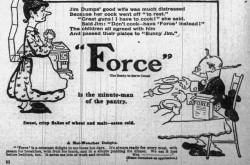
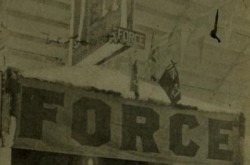

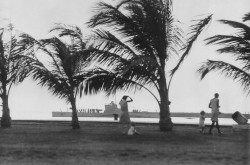
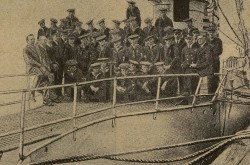
![A block of photographs showing some of the people involved in the bombing of beluga whales in the estuary and gulf of the St. Lawrence River. Anon., “La chasse aux marsouins [sic]. » Le Devoir, 15 August 1929, 6.](/sites/default/files/styles/thumbnail_7/public/2024-09/Le%20Devoir%2015%20aout%201929%20page%206.jpg?h=584f1d27&itok=TppdLItg)

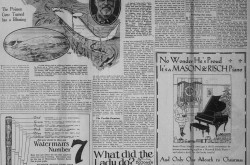
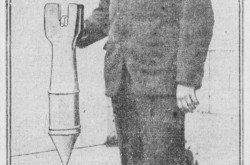

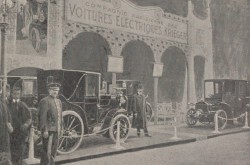
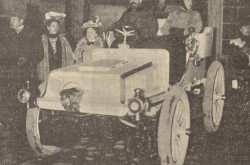



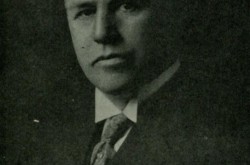
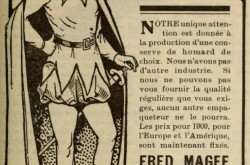

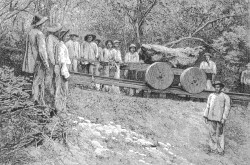


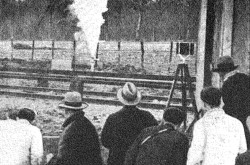



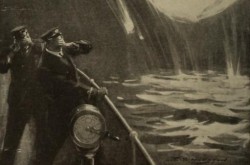







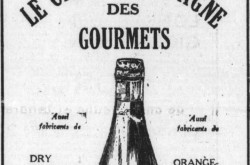
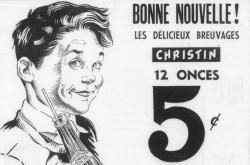
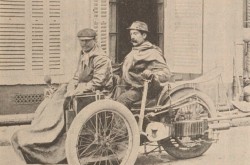
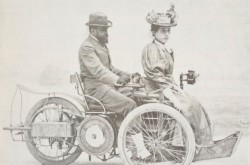
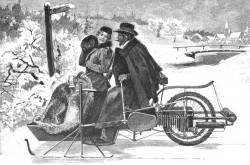


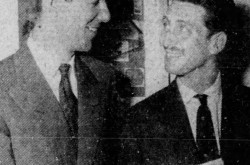


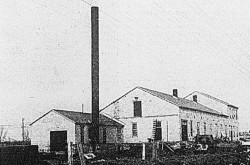
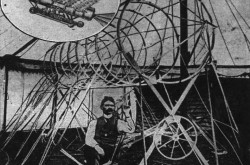
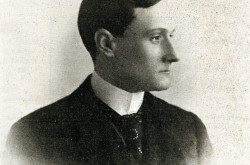
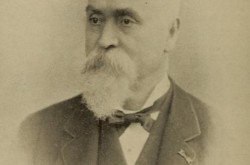
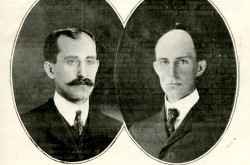

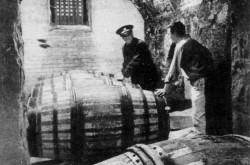
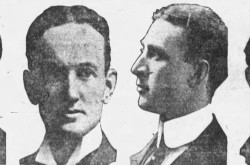


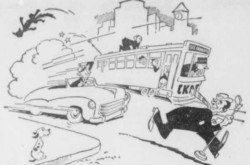

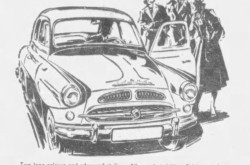




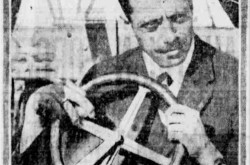

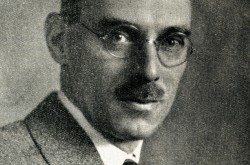




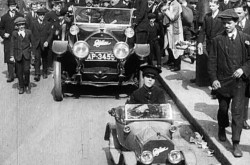
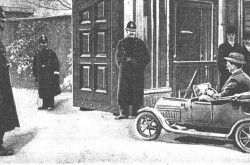









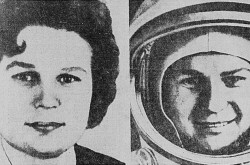






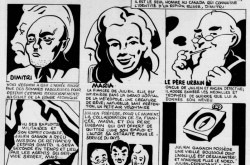


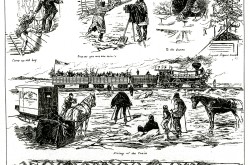
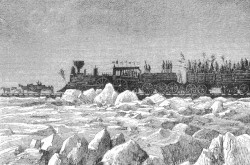

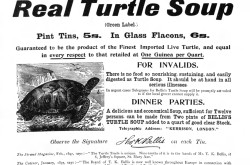
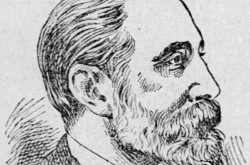



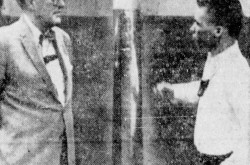


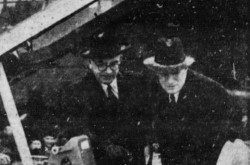
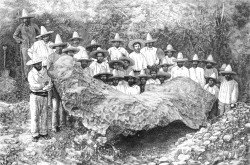

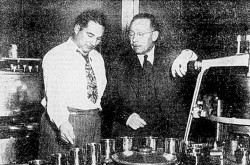










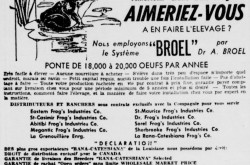
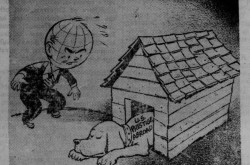





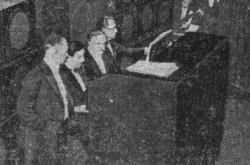



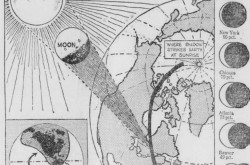
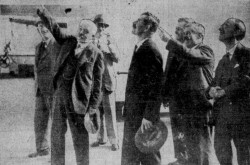


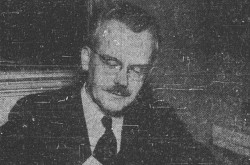









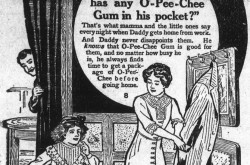
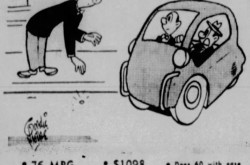


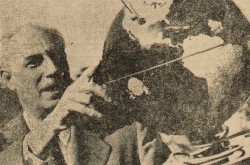









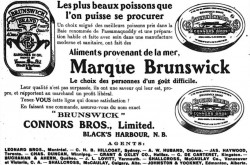


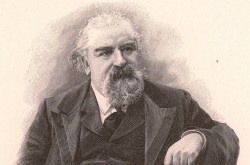
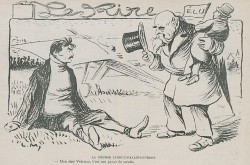
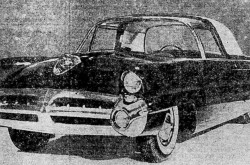





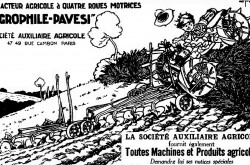






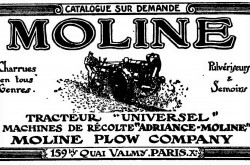



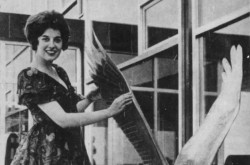
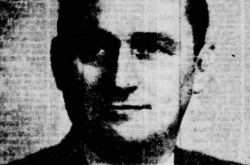

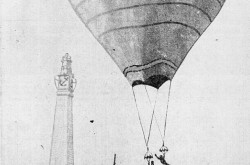






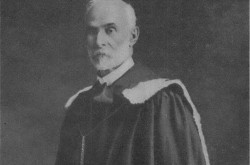






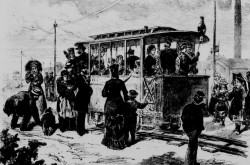
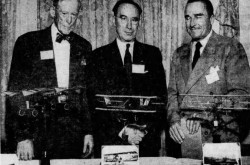



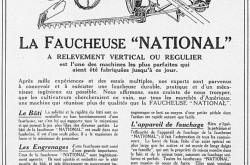


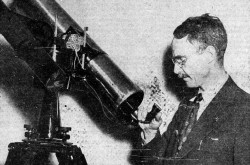


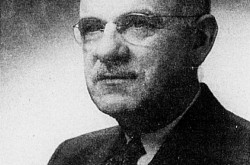


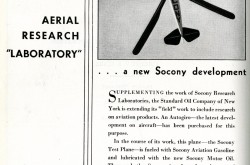
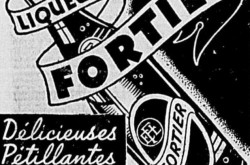



![Peter Müller at the controls [sic] of the Pedroplan, Berlin, Germany, March 1931. Anon., “Cologne contre Marseille – Le mystère du ‘Pédroplan.’ [sic]” Les Ailes, 2 April 1931, 14.](/sites/default/files/styles/thumbnail_7/public/2021-04/Les%20Ailes%202%20avril%201931%20version%20big.jpg?h=eafd0ed4&itok=WnBZ5gMf)



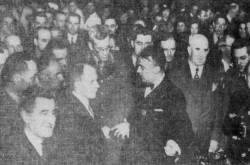





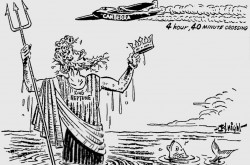


![One of the first de Havilland Canada Chipmunk imported to the United Kingdom. Anon., “De Havilland [Canada] DHC-1 ‘Chipmunk.’” Aviation Magazine, 1 January 1951, cover.](/sites/default/files/styles/thumbnail_7/public/2021-01/Aviation%20magazine%201er%20janvier%201951%20version%202.jpg?h=2f876e0f&itok=DM4JHe5C)





